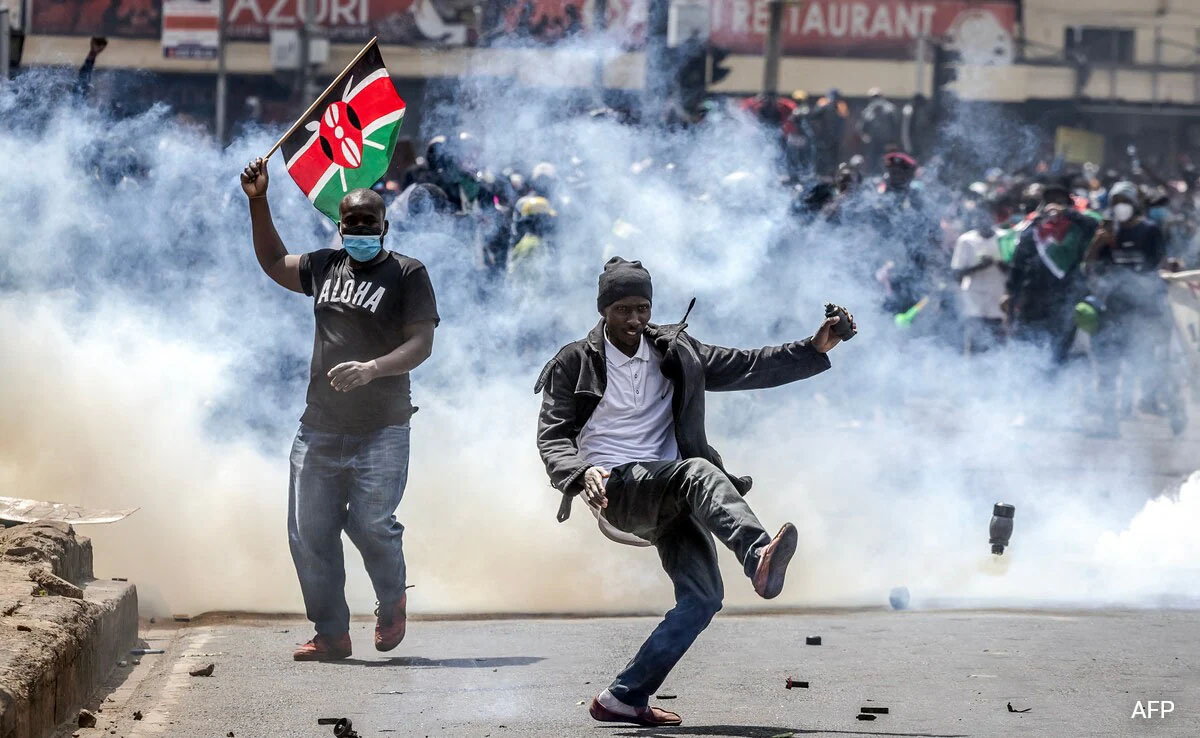
Photo Credit: AP
This week, deadly protests in Kenya and a failed coup in Bolivia have highlighted the dangers posed by faltering economies and harsh austerity measures. Both nations are grappling with severe economic challenges that have ignited widespread unrest and violence.
In Bolivia, President Luis Arce, who previously served as the country's economy minister, successfully fended off a coup attempt on Wednesday. However, he continues to face significant economic difficulties, including U.S. dollar shortages and soaring borrowing costs that have led to the country's credit rating being downgraded to junk.
These financial woes have placed immense pressure on Bolivia's economy and its leadership. Meanwhile, in Kenya, President William Ruto's initial support for a controversial tax-hike measure led to widespread protests. Although he reversed his stance on the tax hikes, the president now faces the daunting task of managing the country's $80 billion debt.
The reversal came too late to quell the anger, as at least 23 people have died in the protests, which have grown from online condemnations to mass rallies demanding a complete political overhaul. The global economic crisis triggered by the 2020 COVID-19 pandemic has had lasting repercussions, particularly for low-income nations.
The pandemic decimated parts of the global economy, and the subsequent surge in inflation and rapid global interest rate increases have further strained many countries. Borrowing costs have soared, and Russia's war in Ukraine has exacerbated the rise in prices of fuel and food, placing additional burdens on already struggling economies.
"There are a lot of governments around the world all facing the pain, delayed fiscal pain, from the interest rate hikes that we've seen in recent years", said Charlie Robertson, head of macro strategy with FIM Partners, which invests in emerging market debt. "It's not a surprise that the country [Kenya] might reach a breaking point".In Kenya, the protests have highlighted the dire state of public services. "It is not just the taxes", said Mary Ngigi, a 37-year-old clothing company worker in Kenya, explaining her reasons for protesting. "When you go to the hospitals, there is no medicine. When you go to the schools, there are no infrastructures".
The turmoil is not confined to Kenya and Bolivia. In Nigeria, workers protesting rising fuel and food costs recently caused a nationwide power outage. Despite tripling petrol prices last year, the country continues to face rising subsidy costs, adding to the economic strain.
The unrest in these nations serves as a stark reminder of the broader global economic challenges facing middle-income and low-income countries. As they grapple with the lingering effects of the pandemic, rising borrowing costs, and inflation, the risk of further unrest and violence looms large. Governments worldwide must navigate these turbulent times carefully to avoid further economic and social upheaval.
















